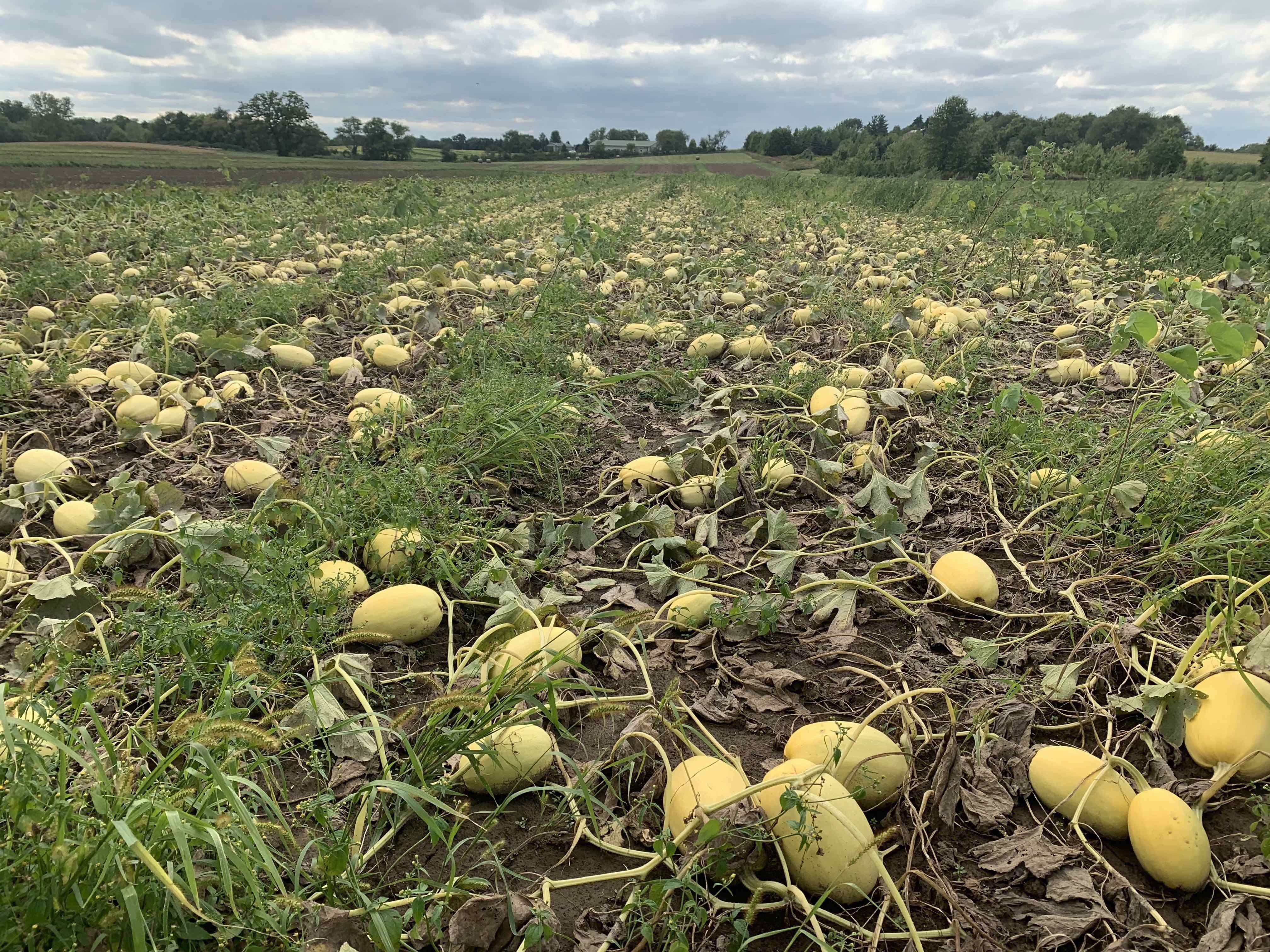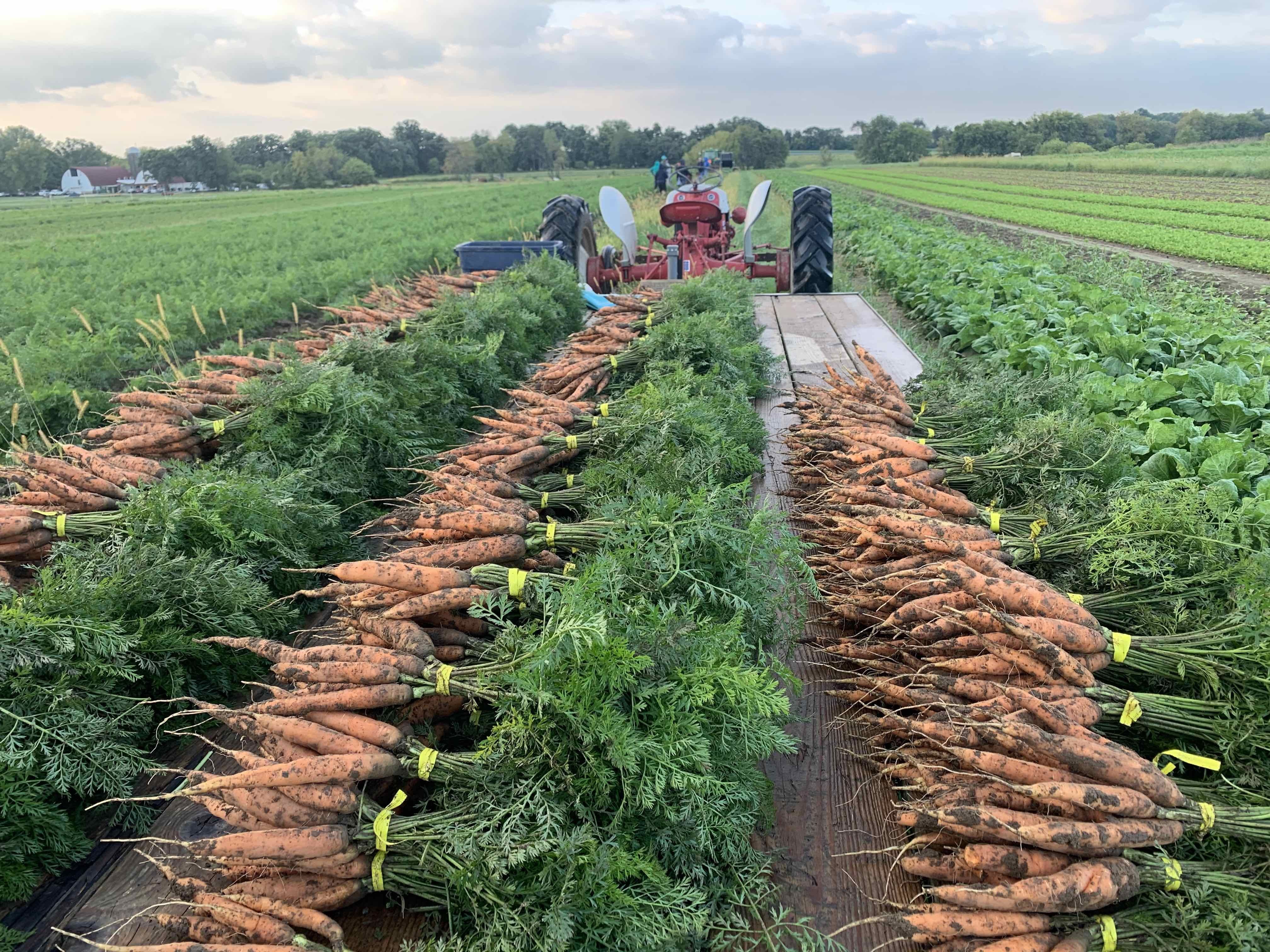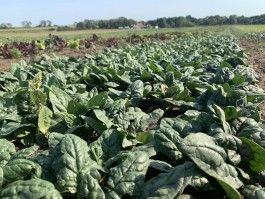Early most mornings, there is dew. The dew makes the leafy greens, such as arugula and mizuna, too damp to harvest. The dew usually lifts gradually; sometimes, if there is wind, it lifts quickly. Leafy greens are best harvested as the dew is lifting, especially on windy days, when the leaves can quickly go from too wet to too dry (prone to wilting). This transition from too wet to too dry might take 20 minutes in wind...continue reading.

Back to Farm Happenings at Angelic Organics Farm
Farmer John Writes: To Whither the Weather?
Posted on September 11th, 2020 by John Peterson
About the farm

Since 1990, Angelic Organics Farm has provided fresh, organic vegetables to households throughout Chicagoland. Today, the farm grows biodynamic and certified organic vegetables on 35 acres and tends another 35 fallow acres as part of its rotational fertility program.
Farmer John Peterson got his start on the family farm in the 1950’s at age nine when he began milking and feeding the cows before and after school. In 1990, Farmer John transitioned the farm to organic vegetables and called it Angelic Organics. He wanted a natural system by which to farm, a system in which results were derived from the integrity of the soil—not from crop chemicals and petroleum based fertilizers.
As Angelic Organics got its footing in the early 90’s, Farmer John turned to the Community Supported Agriculture (CSA) model for a truly comprehensive approach to farming—to reunite people with the source of their food, to share the magnificent drama of farming, to give children the opportunity to see their vegetables grow. This completes the farming picture beautifully, providing deep satisfaction to shareholders and farmers alike.
You can learn much more about Angelic Organics and Farmer John by watching the feature documentary film The Real Dirt on Farmer John seen by millions throughout the world and winner of 31 film festival awards.
Go to farm profile
Farmer John Peterson got his start on the family farm in the 1950’s at age nine when he began milking and feeding the cows before and after school. In 1990, Farmer John transitioned the farm to organic vegetables and called it Angelic Organics. He wanted a natural system by which to farm, a system in which results were derived from the integrity of the soil—not from crop chemicals and petroleum based fertilizers.
As Angelic Organics got its footing in the early 90’s, Farmer John turned to the Community Supported Agriculture (CSA) model for a truly comprehensive approach to farming—to reunite people with the source of their food, to share the magnificent drama of farming, to give children the opportunity to see their vegetables grow. This completes the farming picture beautifully, providing deep satisfaction to shareholders and farmers alike.
You can learn much more about Angelic Organics and Farmer John by watching the feature documentary film The Real Dirt on Farmer John seen by millions throughout the world and winner of 31 film festival awards.


